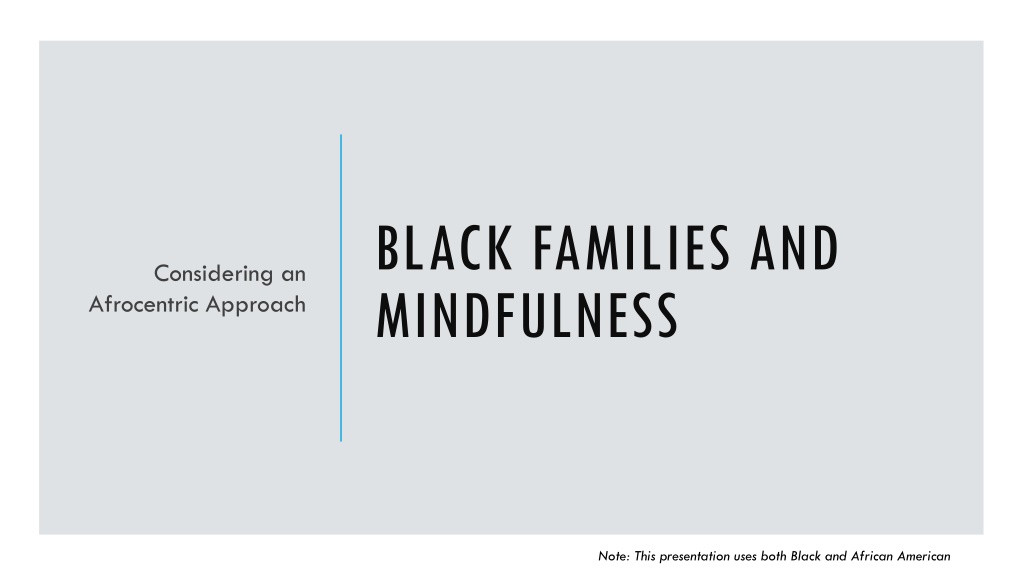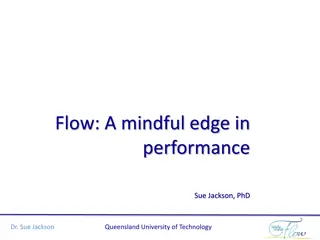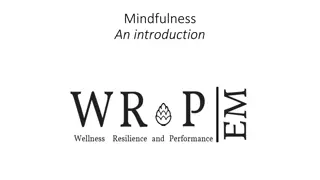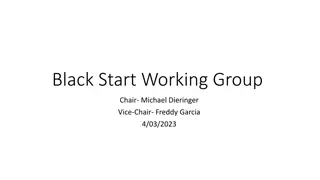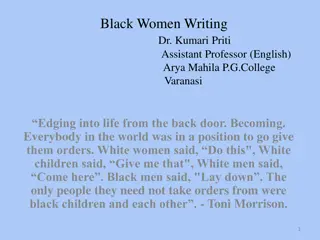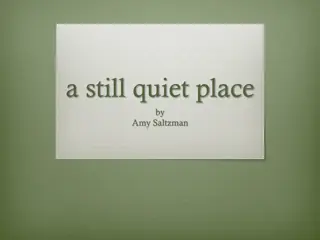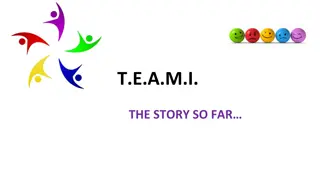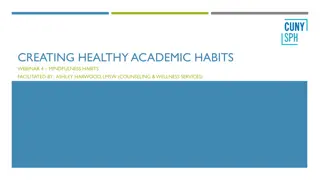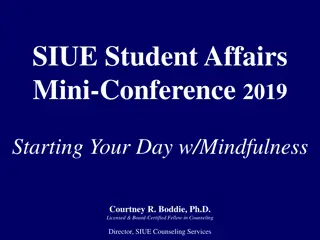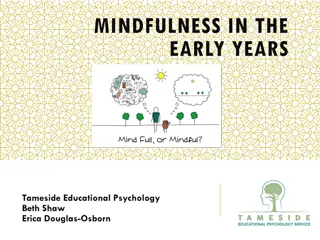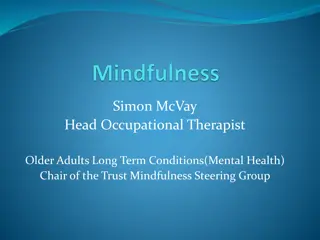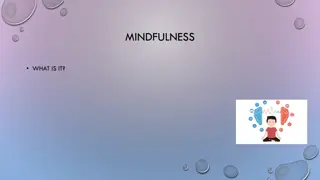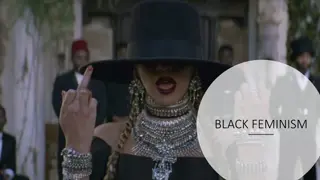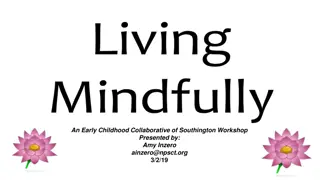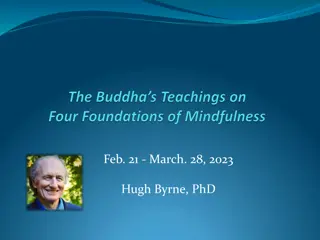Understanding Mindfulness in Afrocentric Approach for Black Families
Exploring the impact of mindfulness from an Afrocentric perspective on Black/African American families and individuals. Analyzing the role of ideologies, social locations, and gender expectations in shaping health outcomes and stress-related illnesses within the community. Embracing Maya Angelou's wisdom to continuously strive for improvement and betterment, especially in the context of mental health and well-being.
Download Presentation

Please find below an Image/Link to download the presentation.
The content on the website is provided AS IS for your information and personal use only. It may not be sold, licensed, or shared on other websites without obtaining consent from the author. Download presentation by click this link. If you encounter any issues during the download, it is possible that the publisher has removed the file from their server.
E N D
Presentation Transcript
BLACK FAMILIES AND MINDFULNESS Considering an Afrocentric Approach Note: This presentation uses both Black and African American
Science gives us a way of thinking about disease, but the arts and humanities provide insight, context, and understanding of what it means to be ill. Diseases are black and white, described by facts, figures, categories, and concepts, but illness is coloured, nuanced by context, and shaped by individual circumstances Fergus Shanahan
DEFINING MOMENTS Social Location Ideology Center
A system of beliefs that groups of people share and believe are inherently true, acceptable, and natural. We learn ideologies from our personal and social environments (e.g., family, school, neighborhoods, places of worship, media) system of beliefs We subtly learn ideologies from unobtrusive apparatus (e.g., visuals, stories) IDEOLOGIES
DO THE BEST YOU CAN UNTIL YOU KNOW BETTER. THEN WHEN YOU KNOW BETTER, DO BETTER. MAYA ANGELOU
WOMEN IN FAMILY SETTINGS Experience more non-life-threatening stress related illnesses than men Workplace responsibilities bulk of at home and/or family responsibilities Gender expectations impact women of various relationship statuses
BLACK/AFRICAN AMERICAN FAMILIES African Americans experience high levels of: Chronic Psychological Stress Co-occurring Stress Can lead to a higher burden of chronic disease and poor health outcomes African American Women Types of social support varied in family settings Majority of support comes from African American women Health Decision makers Strong Black Woman Troupe Lead to preventable stress related illness
WORLDVIEW AND MINDFULNESS Mindfulness is a Functional Process Self regulation of attention Observe, describe, act with awareness and accept without judgment Afrocentricity theorists assert that people should connect with the worldview linked to their cultural heritage Differences exist within cultural groups, but meaningful connections are present.
MINDFULNESS AND AFRICAN AMERICANS Barriers Religiosity Lack of awareness / openness (perception) General Preference Addressing Barriers Cultural Communication Complementary Approach Culturally connected practice Deep structure
NTU APPROACH TO HEALTH AND HEALING AFRO[I]CENTRIC FRAMEWORK Driven by six characteristics Spiritually Oriented Family Focused Culturally Competent Competency Based Holistic/Systemic Values Driven NTU provides an Africentric understanding of the world Helps families by using ancient Eastern principles of healing Harmony, Balance, Interconnectedness, Authenticity Links deep structure and mindfulness Sociocultural, Historical, Environmental, Psychological NTU Bantu Central African Concept that refers to Essence.
NTU CHARACTERISTICS COMPETENCY BASED ASSETS RATHER THAN DEFICITS FOCUSED ENERGY SPIRITUALLY ORIENTED IMPACTS INDIVIDUALS AND FAMILIES SIGNIFICANT MOTIVATOR HOLISTIC/SYSTEMIC MIND, BODY, SPIRIT ARE CONNECTED FAMILY FOCUSED INTERCONNECTION COLLECTIVIST ORIENTATION VALUES DRIVEN CREATES PURPOSE AFFIRMING ENCOURAGING CULTURALLY COMPETENT AWARENESS OF SELF AND OTHERS REDUCES HIERARCHY
BLACK WOMEN AND FAMILY COMPETENCY BASED Reorganize family roles Focus on strengths (task assignments) SPIRITUALLY ORIENTED Linked to health seeking behaviors Twice as likely to use conventional and complementary medicine HOLISTIC/SYSTEMIC Intrapersonally Interpersonally Collective Approach FAMILY FOCUSED Challenges / Hierarchical Frames Flexibility in Role Expectations VALUES DRIVEN Family s pluralistic needs CULTURALLY COMPETENT More balance, less stress, better health
Lecture shaped by this Article and Sources REFERENCES
